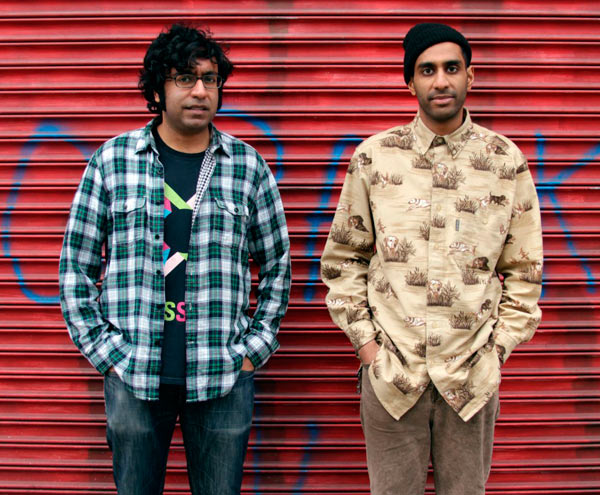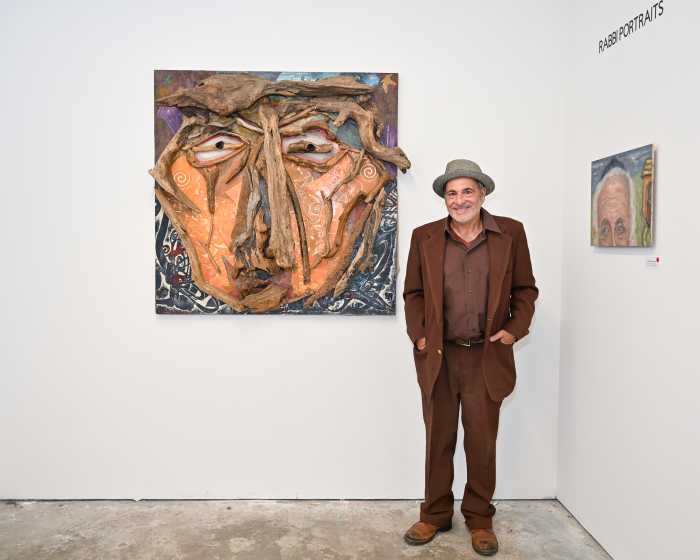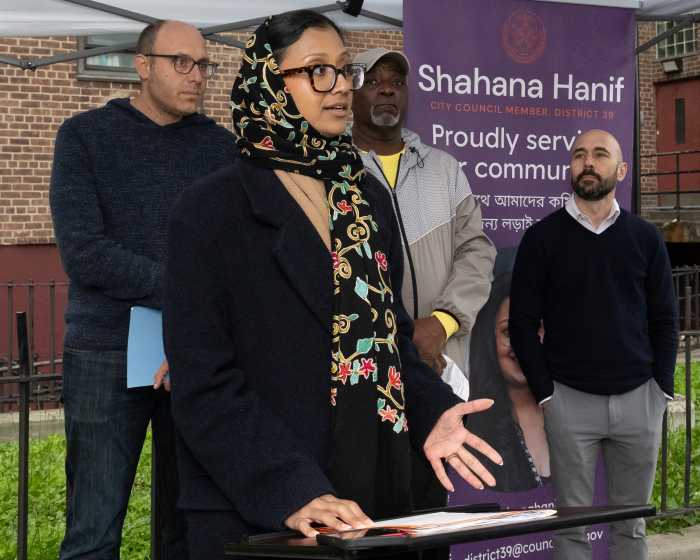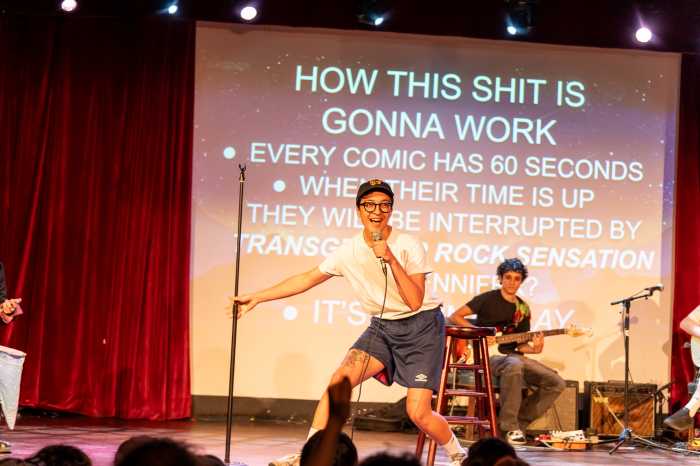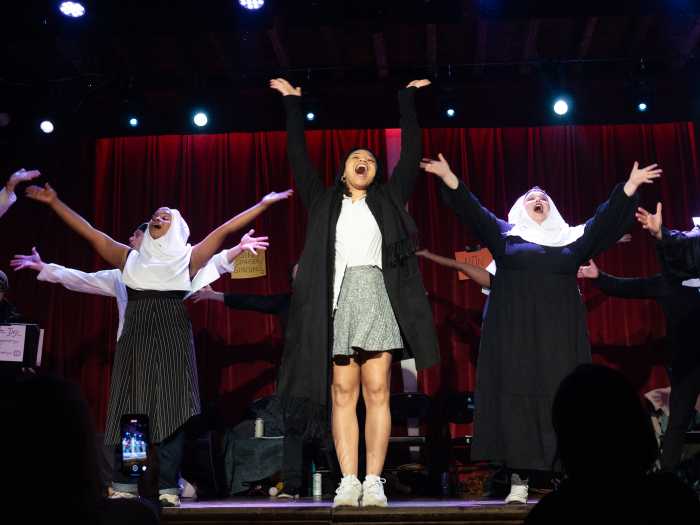This show is untitled and unscripted!
A Windsor Terrace comedian known for challenging racism and puncturing pop culture figures will team up with his deejay brother for an improvised, impromptu discussion of personal and political topics — including their South Asian roots, baseball, and moustaches — at the latest installment of the “Untitled Kondabolu Brothers Project,” a semi-regular live talk show at Littlefield in Gowanus. The brothers say that they plan ahead as little as possible to ensure their show on Dec. 27 will be as off-the-cuff as their personal conversations.
“It’s essentially two brothers talking to themselves naturally and occasionally acknowledging a live audience,” said Hari Kondobolu, performing with his brother Ashok — also known as “Dap” — who lives in Williamsburg. “What we’ve been doing recently is making a list of topics to flash on a screen behind us just as a trigger to get started, but the conversations go where they go. It can be really serious at times, it can be really funny at times.”
The conversations frequently gravitate towards issues of identity, race, and representation, the brothers said — whether that means making fun of white people who wear Native American headdresses, or discussing the lack of South Asian characters on television.
“This is stuff that both of us have talked about to death,” he said. “Both of us have talked about representation a great deal and the impact of that. This is based on the two of us’ personal experiences.”
One outgrowth of those long-running discussions, said that brothers, was Hari’s documentary “The Problem with Apu,” which premiered last month on truTV. The hour-long show challenges the portrayal of popular “Simpsons” character Apu Nahasapeemapetilon, an Indian immigrant with a stereotypical accent, voiced by white actor Hank Azaria. The racism underlying the portrayal of the Kwik-E-Mart employee is more of a product of America’s shortcomings than those of the writers on “The Simpsons,” Hari concluded.
“I think America has a hazing process when we talk about minority groups,” he said. “I feel like everyone has to go through this long period of humiliation, and I think this is an extension of this idea. When they gave people of color a voice, they didn’t give us an accurate one.”
Hari is now hearing from long-time “Simpsons” fans who tell him they see the show — and Apu — in a new light after seeing his documentary.
“A lot of people do think about it in a different way, because how can you not when it’s a perspective you’ve never seen,” he said.
Hari just recorded an hour-long stand-up special in Seattle, and Ashok primarily works on his radio and video show, “Chillin Island.”
For those who miss the live show, the two brothers plan to bring their stage show to your earbuds, recording 12 more episodes of their “Untitled Kondabolu Brothers Podcast,” which has been on hiatus since 2015.
“The Untitled Kondabolu Brothers Project” at Littlefield (635 Sackett St. between Third and Fourth avenues in Gowanus, www.littl


